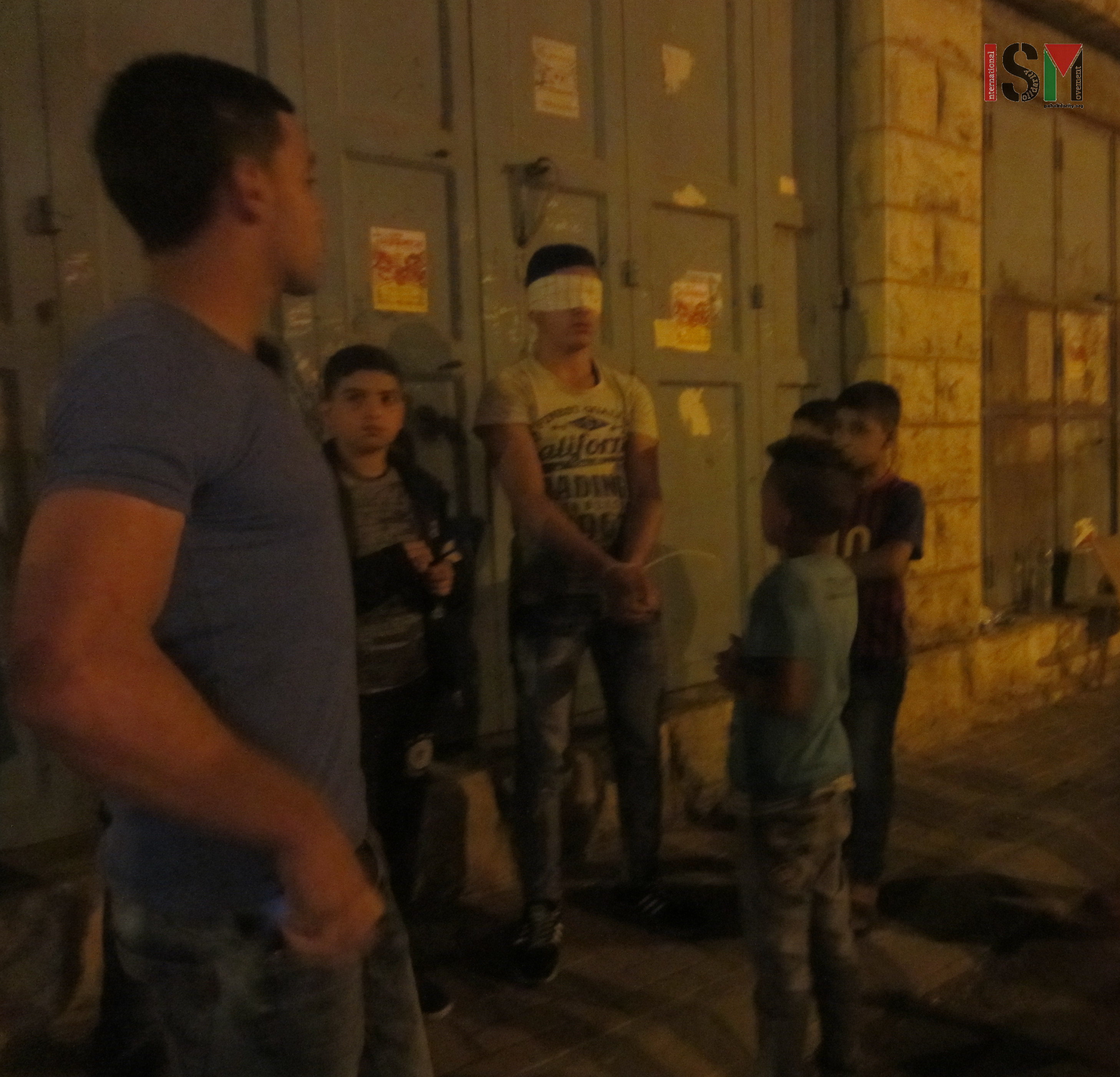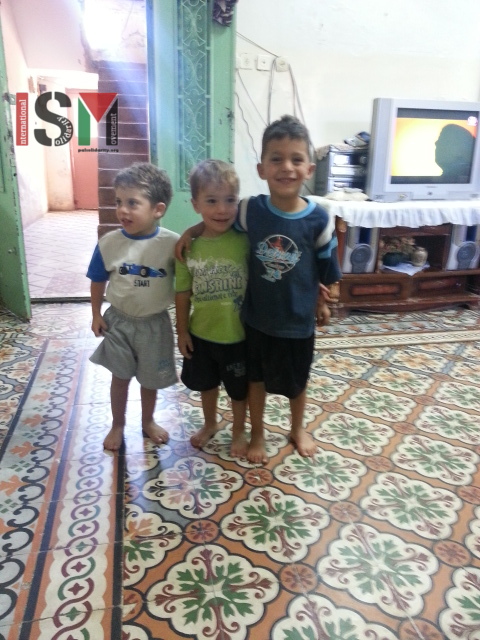Tag: Settlers
-
Three Palestinian boys violently arrested at night in Hebron
21st September 2015 | International Solidarity Movement, Al-Khalil Team | Hebron, Occupied Palestine Monday the 21st of August three boys were arrested in the Tel Rumeida area of Hebron, occupied Palestine. The boys were arrested at 8:45 pm and taken to the military base in Tel Rumeida. Two of the boys were arrested after allegedly…
-
Settler violence escalates in the vicinity of Kiryat Arba illegal settlement
19th September 2015 | International Solidarity Movement, Al-Khalil Team | Hebron, Occupied Palestine The children of the Jabari family in Jabari neighbourhood of al-Khalil are singing along to a Palestinian children’s television show. It is a sunny Saturday morning but in the small living area, six tiny children sit with their mothers who explain to…
-
10-year old boy arrested and blindfolded in Hebron
18th September 2015 | International Solidarity Movement, Al-Khalil Team | Hebron, Occupied Palestine Tonight in occupied al-Khalil (Hebron), Israeli forces arrested a 10-year old Palestinian boy twice. Both times he was taken to the military base. Marwan Sharabati was playing outside his house, riding a bicycle in the street, in the vicinity of a military…



